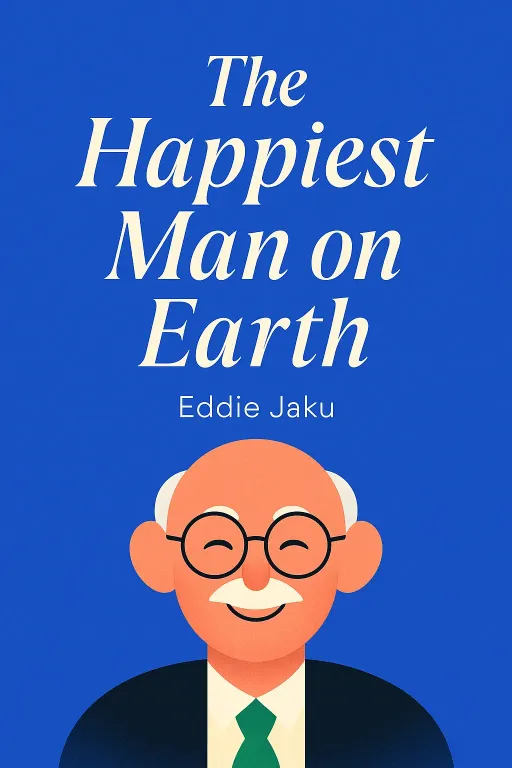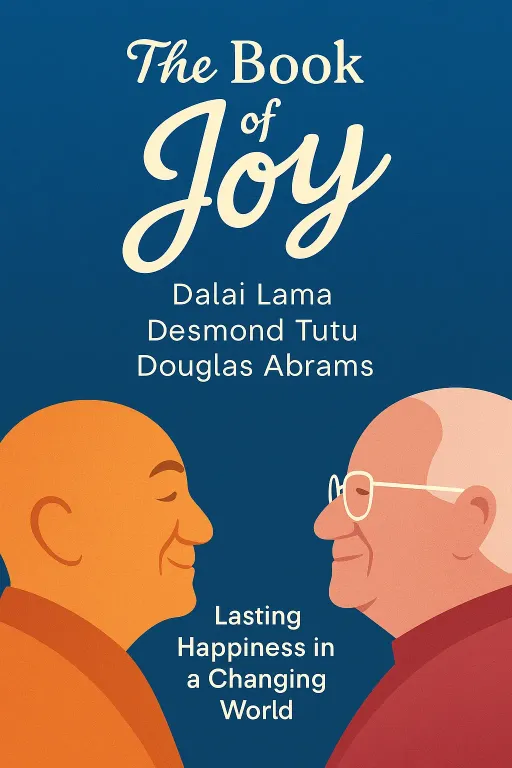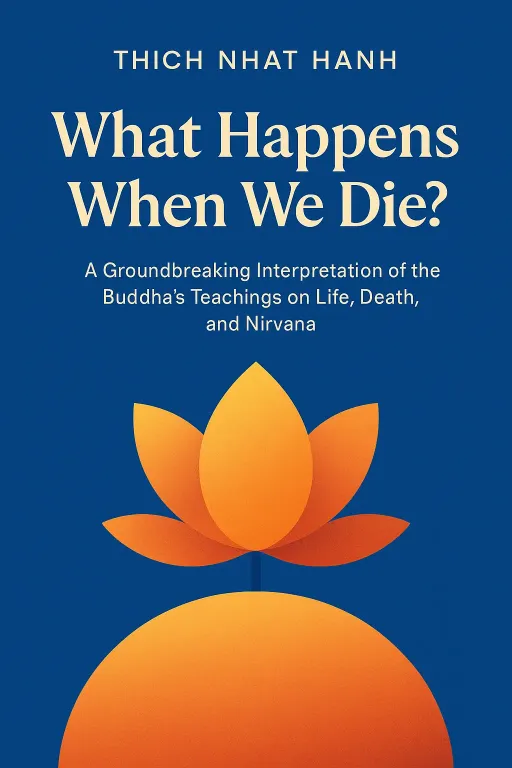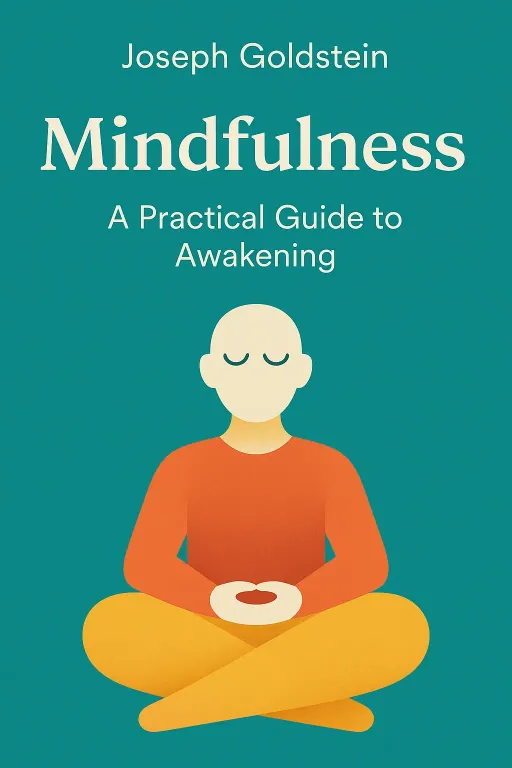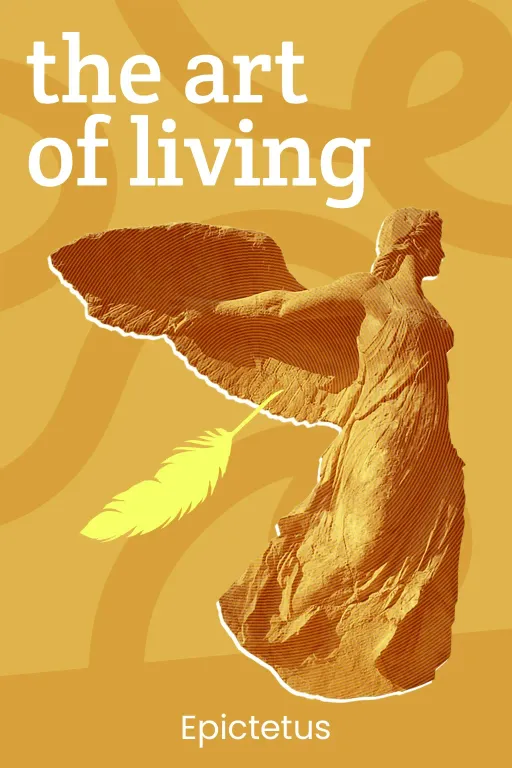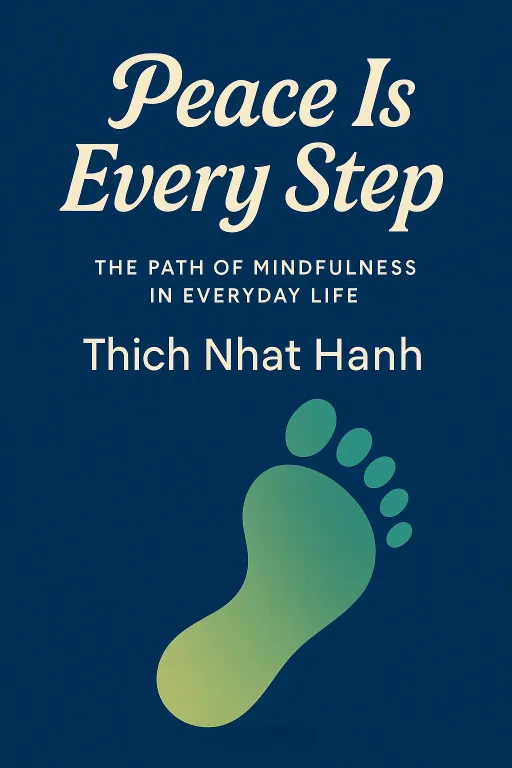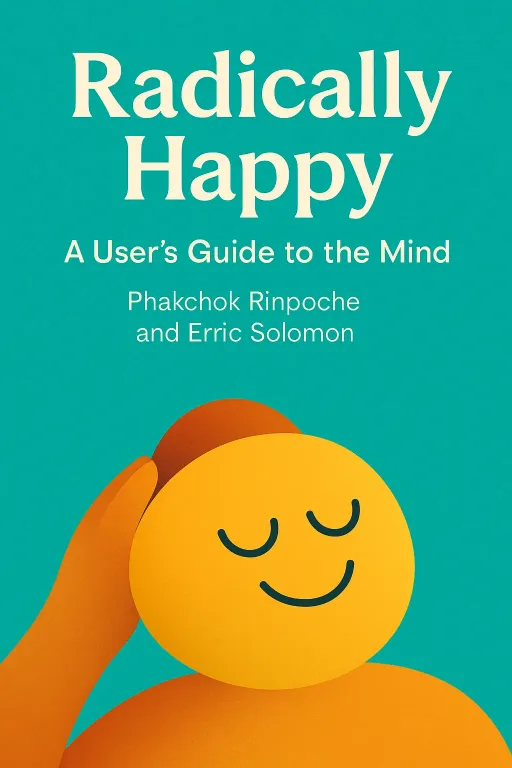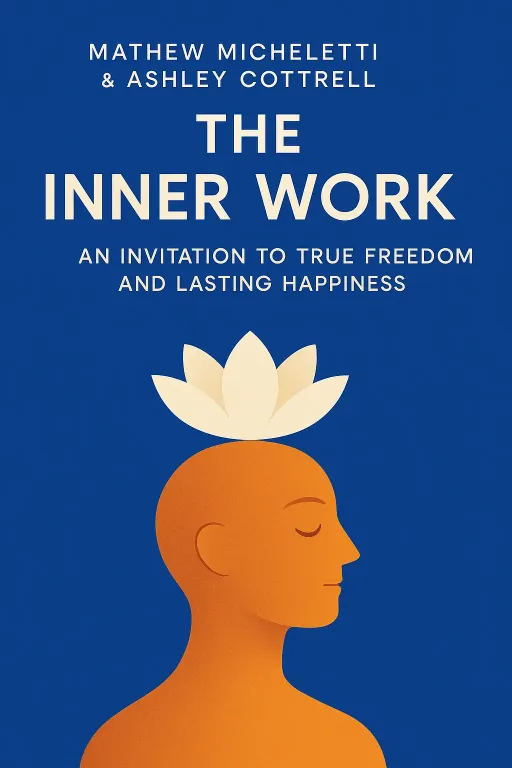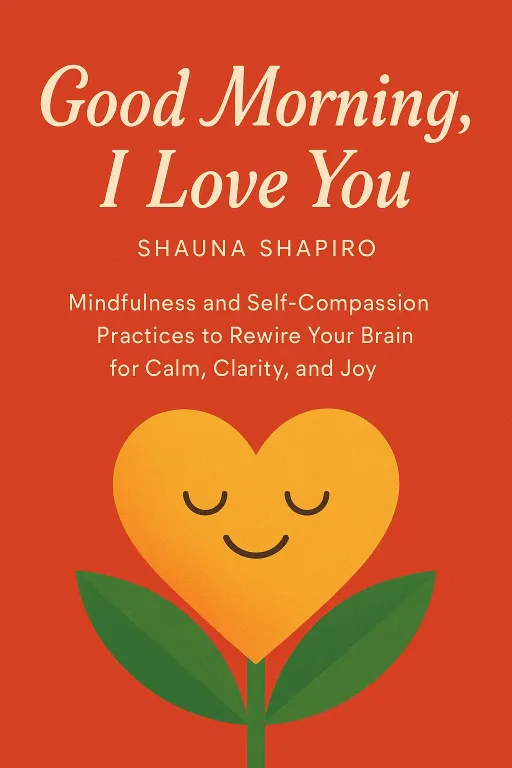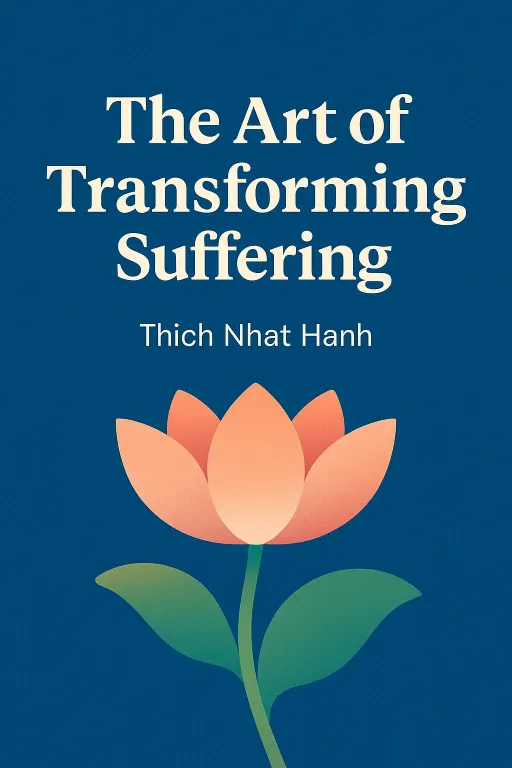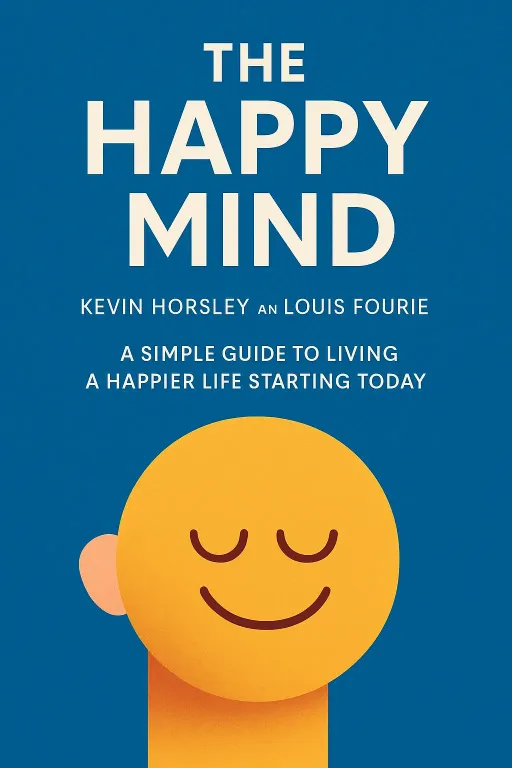
Your Brain is a Bad Landlord
11 minA Simple Guide to Living a Happier Life Starting Today
Golden Hook & Introduction
SECTION
Laura: Alright, Sophia. Five-word review for today's book. Go. Sophia: Stop chasing butterflies. Build garden. Laura: Ooh, poetic! I love that. Mine is: Your brain is a bad landlord. Sophia: Okay, I'm intrigued. And a little worried. That sounds like my brain is about to raise my rent and ignore a leak in the ceiling. What are we talking about today? Laura: We are diving into a wonderfully concise and powerful little book called The Happy Mind: A Simple Guide to Living a Happier Life Starting Today by Kevin Horsley and Louis Fourie. Sophia: The Happy Mind. That’s a bold promise. Most books on this topic are either a thousand pages long or feel like they’re trying to sell you a yoga mat. Laura: Exactly, and this one avoids both traps. It’s this fascinating mix—Horsley is a professional speaker on memory and motivation, and Fourie is a literary translator. You can feel that blend in the writing. It's practical and punchy, but it's also filled with these beautiful, almost philosophical quotes that really make you stop and think. Sophia: A motivational speaker and a poet walk into a bar… and write a book on happiness. I like it. So, what’s the deal with my brain being a bad landlord? Laura: Well, that’s the entire premise. The book argues that for most of our lives, our brain—our default way of thinking—tells us that happiness isn't here. It's somewhere else. It's in a different apartment, a better neighborhood, and we have to go out and find it. Sophia: Right, the classic "I'll be happy when..." syndrome. I'll be happy when I get the promotion, when I move to a new city, when I finally finish watching this series I'm binging... Laura: Precisely. And the book brilliantly categorizes these "somewhere elses" into three main illusions, three places this bad landlord tells us to search for happiness. And they are traps.
The Great Happiness Misdirection: Why We Look in All the Wrong Places
SECTION
Sophia: Okay, lay them on me. What are these three great happiness traps? Laura: The first one is probably the most common: seeking happiness in 'the world.' This means things—wealth, status, possessions, physical appearance. The book tells this fantastic, cautionary tale about a man named John, the Treasure Hunter. Sophia: A treasure hunter. Sounds adventurous. Laura: It was, but not in a good way. John was a middle-class guy in New York who became completely consumed by the idea that wealth was the key to happiness. He wasn't just trying to be comfortable; he was chasing the lifestyles of the rich and famous he saw on TV. Sophia: I think we all have a little bit of that in us. We see an Instagram post and think, "Their life looks nice." Laura: For sure. But John took it to the extreme. He started working 60, then 70 hours a week. He sacrificed time with his family, his friends, his health. He poured money into risky investments, desperate for that one big score that would finally let him be happy. Sophia: And let me guess, it didn't work? Laura: He actually accumulated a significant amount of wealth. His bank account grew. But the book says he found himself feeling more empty and unfulfilled than ever. He had the treasure, but he'd lost himself in the process of digging for it. He realized the pursuit of money had cost him everything that actually mattered. Sophia: Hold on, though. I have to push back a little. While being obsessed with wealth is obviously a problem, a certain level of financial security absolutely reduces unhappiness. Not having to stress about rent is a huge weight off your shoulders. Isn't that a form of happiness? Laura: That's a fantastic point, and the book doesn't disagree. It's not saying money is evil. The trap isn't having money; it's believing that money is the destination. It's the 'if-then' formula: if I am rich, then I will be happy. John's story is an extreme example of how that formula fails. The book quotes Eckhart Tolle, saying, "While trying to find yourself in things, you may end up losing yourself in things." Sophia: Okay, that makes sense. It’s the difference between using money as a tool and worshipping it as a god. So what's the second trap? Laura: The second trap is seeking happiness in 'another time.' This is for anyone who lives in the past or the future. The book gives us the character of Mary, the Time Traveler. Sophia: I think I know a few of those. Laura: Mary is an elderly woman who spends all her time reminiscing about the 'good old days.' She's constantly looking through old photo albums, telling stories about her youth, and idealizing her past. She remembers the sunshine but forgets the struggles. Sophia: She's living in a highlight reel of her own life. And the problem is, the present can never compete with a perfectly curated memory. Laura: Exactly. She's disconnected from the now. The book uses this beautiful, sad quote from Colley Cibber: "The happy have whole days And those they choose. The unhappy have but hours And those they lose." Mary is losing all her present hours by dwelling in the past. And this works for the future too—the person who is always waiting for the weekend, for the vacation, for retirement. Sophia: Right. The "I just need to get through this week" mentality. Which becomes "I just need to get through this month," and then "this year." And suddenly your life has passed you by. Okay, so we have the trap of things and the trap of time. What's the third one? Laura: The third trap is seeking happiness in 'other people.' This is the story of Sarah, the Dependent Partner. She was a young woman who believed her happiness was locked inside another person. All she needed was to find 'the one,' and then her life would finally be complete. Sophia: Oh, that's the plot of about 90% of romantic comedies. It's a powerful myth we're sold from a very young age. Laura: A very powerful myth. Sarah went on countless dates, constantly searching for this perfect partner who would solve all her problems. She put these people on impossible pedestals, and of course, they always fell off. She was outsourcing her self-worth. Sophia: And when a relationship ended, her happiness ended with it. Laura: Precisely. She eventually realized that her happiness couldn't be dependent on someone else's presence or approval. She had to build it within herself first. Sophia: Wow. So John the Treasure Hunter, Mary the Time Traveler, and Sarah the Dependent Partner. They're all outsourcing their happiness. John to his bank account, Mary to her photo albums, and Sarah to her dating app. They’ve all got a bad landlord telling them the good life is somewhere else. Laura: That's the perfect summary. They're all looking for happiness in a stranger's garden, as one of the book's quotes puts it.
The Happiness Skill: Shifting from a Destination to a Daily Practice
SECTION
Sophia: Okay, so if we stop outsourcing, if we fire that landlord and stop looking in the world, in time, or in other people... what's the alternative? Do we just sit in a room and... generate happiness from thin air? Laura: That's the million-dollar question, isn't it? And this is where the book makes its most profound shift. It argues that happiness is not a destination you find or a feeling you get. It's a 'now-and-here' skill that you practice. Sophia: A skill. Like learning to play the piano or speak a new language? You're saying I need to do happiness push-ups? Laura: In a way, yes! You used the perfect analogy in your five-word review. You stop chasing the butterfly of a fleeting good mood, and you start tending the garden where happiness can grow consistently. It's an active, daily process. Sophia: I like that. It feels more empowering. So what does 'tending the garden' look like in practice? What are the skills? Laura: The book outlines nine common qualities of happy people. We don't have time for all of them, but a couple are really foundational. The first is that happy people think differently. When something bad happens, an unhappy person asks, "Why does this always happen to me?" or "Who can I blame?" Sophia: The victim mindset. Laura: Right. But a happy person asks, "What am I going to do about this?" and "How can I prevent this from happening again?" They take full accountability. They see themselves as the pilot of their life, not a passenger. It's a fundamental shift from blame to responsibility. Sophia: That's a huge mental switch. It’s the difference between being a thermostat and a thermometer. One just reflects the temperature of the room; the other actually sets it. Laura: What a perfect analogy. And that's exactly it. And the most powerful story in the entire book illustrates this principle perfectly. It’s about a 92-year-old woman moving into a nursing home. Sophia: Okay, I'm listening. Laura: She's all dressed up, hair and makeup done perfectly, ready to go. After a long wait, the staff tells her that her room is ready. As she's making her way to the elevator with her walker, a nurse is describing the tiny little room to her, trying to manage her expectations. But before the nurse can even finish, the old woman says, with a huge smile, "I love it!" Sophia: Before she's even seen it? Laura: Before she's even seen it. The nurse is confused and says, "But Mrs. Jones, you haven't even seen the room yet. Let's wait." And the old woman replies with this absolute gem. She says, "That doesn't have anything to do with it. Happiness is something you decide on ahead of time. Whether I like my room or not doesn't depend on how the furniture is arranged... it's how I arrange my mind." Sophia: Wow. Just... wow. That actually gave me chills. She's not reacting to the room; she's creating her experience of it. That's the 'skill' in action, isn't it? Laura: That is the skill in its purest form. She decided to be happy, and the circumstances just had to fall in line with her decision. She is the thermostat. She is setting the temperature of her own life, even in a nursing home.
Synthesis & Takeaways
SECTION
Sophia: That story really ties everything together. The treasure hunter, the time traveler, the dependent partner—they were all thermometers, completely at the mercy of their external conditions. They were waiting for the room to be perfect. Laura: Exactly. The book's big reveal is that we spend our lives trying to redecorate the room, hoping the perfect furniture or the perfect roommate will finally make us happy. We chase wealth, we long for the past, we seek validation. Sophia: But the 92-year-old woman shows us the real secret. The power isn't in changing the room. It's in changing how you arrange your mind about the room. Laura: That's the core of it. Happiness is an inside job. It's the daily practice of choosing your response, of taking accountability, of appreciating what you have instead of focusing on what you lack. It's about tending your own garden, right here, right now. Sophia: It’s about firing that bad landlord in your brain who keeps telling you that you need to move. And it makes you wonder... what's the one 'if-then' happiness promise you're still waiting on? Laura: That's a powerful question. Sophia: We all have one. "If I just lose ten pounds, then I'll feel confident." "If I just get that new job, then I'll feel successful." "If I just find a partner, then I won't be lonely." The book is asking... what if you just... let it go? What if you decided to be happy now, right where you are? Laura: A challenging and liberating thought to end on. Remember, you don't have to be happy for the rest of your life. Only now. Be. Sophia: This is Aibrary, signing off.
